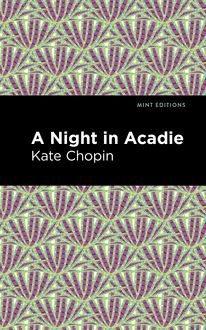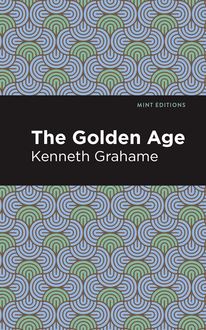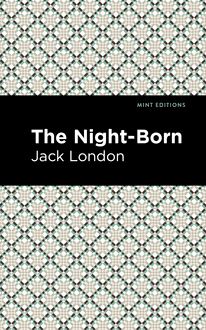-
 Univers
Univers
-
 Ebooks
Ebooks
-
 Livres audio
Livres audio
-
 Presse
Presse
-
 Podcasts
Podcasts
-
 BD
BD
-
 Documents
Documents
-
- Cours
- Révisions
- Ressources pédagogiques
- Sciences de l’éducation
- Manuels scolaires
- Langues
- Travaux de classe
- Annales de BEP
- Etudes supérieures
- Maternelle et primaire
- Fiches de lecture
- Orientation scolaire
- Méthodologie
- Corrigés de devoir
- Annales d’examens et concours
- Annales du bac
- Annales du brevet
- Rapports de stage
La lecture à portée de main
Vous pourrez modifier la taille du texte de cet ouvrage
Découvre YouScribe en t'inscrivant gratuitement
Je m'inscrisDécouvre YouScribe en t'inscrivant gratuitement
Je m'inscrisEn savoir plus
Vous pourrez modifier la taille du texte de cet ouvrage
En savoir plus

Description
Stolen Souls (1895) is a short story collection by Anglo-French writer William Le Queux. Published at the beginning of Le Queux’s career as a leading author of popular thrillers, Stolen Souls contains stories of mystery, espionage, and international crime. Using his own research and experience as a journalist and adventurer, Le Queux crafts an accessible, entertaining world for readers in search of a literary escape. Known for his works of fiction and nonfiction on the possibility of Germany invading Britain—a paranoia common in the early twentieth century—William Le Queux also wrote dozens of thrillers and adventure novels for a dedicated public audience. Although critical acclaim eluded him, popular success made him one of England’s bestselling writers. Stolen Souls is a collection of fourteen entertaining and thought-provoking short stories set throughout Europe. In “The Soul of Princess Tchikhatzoff,” an English journalist enters a popular restaurant on Nevski Prospekt in St. Petersburg. Dining alone, he cannot help but notice the strange couple sitting at the table next to him. The man, handsome, with a devious look in his eye, seems to be controlling the conversation, while his partner, a beautiful, ornately dressed woman, looks entirely uncomfortable. After they’ve left, the journalist goes out into the frigid Russian night, when suddenly a stranger approaches who cryptically invites him to a meeting of local Nihilists. In “The Golden Hand,” a reporter on assignment in Spain receives a tip to where the nation’s leaders—who have fled Madrid in a time of unrest—will be staying. Hungry for a story, anxious to provide information to the British people, and overall looking to break with several months of aimless wandering, he checks into his hotel and awaits his chance. With a beautifully designed cover and professionally typeset manuscript, this edition of William Le Queux’s Stolen Souls is a classic short story collection reimagined for modern readers.
Sujets
Informations
| Publié par | Mint Editions |
| Date de parution | 21 mai 2021 |
| Nombre de lectures | 0 |
| EAN13 | 9781513286006 |
| Langue | English |
| Poids de l'ouvrage | 1 Mo |
Informations légales : prix de location à la page 0,0500€. Cette information est donnée uniquement à titre indicatif conformément à la législation en vigueur.
Extrait
Stolen Souls
William Le Queux
Stolen Souls was first published in 1895.
This edition published by Mint Editions 2021.
ISBN 9781513280981 | E-ISBN 9781513286006
Published by Mint Editions®
minteditionbooks.com
Publishing Director: Jennifer Newens
Design & Production: Rachel Lopez Metzger
Project Manager: Micaela Clark
Typesetting: Westchester Publishing Services
C ONTENTS I. T HE S OUL OF P RINCESS T CHIKHATZOFF II. T HE G OLDEN H AND III. T HE M ASKED C IRCE IV. T HE M AN WITH THE F ATAL F INGER V. S ANTINA VI. T HE W OMAN WITH A B LEMISH VII. T HE S YLPH OF THE T ERROR VIII. O NE W OMAN’S S IN IX. V OGUE L A G ALERE ! X. F ORTUNE’S F OOL XI. D EATH -K ISSES XII. T HE C ITY IN THE S KY XIII. T HE B LOOD -R ED B AND XIV. A C HILD OF THE S UN
I
T HE S OUL OF P RINCESS T CHIKHATZOFF
Wrapped in furs until only my nose and eyes were visible, I was walking along the Nevski Prospekt in St. Petersburg one winter’s evening, and almost involuntarily turned into the Dominique, that fashionable restaurant which, garish in its blaze of electricity, is situated in the most frequented part of the long, broad thoroughfare. It was the dining-hour, and the place, heated by high, grotesquely-ornamented stoves, was filled with officers, ladies, and cigarette smoke, while the savoury smell of national dishes mingled judiciously with those of foreign lands.
At the table next the one at which I seated myself were two persons, a man and a woman.
The former, who was about fifty, had a military bearing, a pair of keen black eyes, closely-cropped iron-grey hair, and a well-trimmed bushy beard. The woman was young, fair haired, and pretty. Her eyes were clear and blue, her face oval and flawless in its beauty, and she was attired in a style that showed her to be a patrician, wearing over her low-cut evening dress a velvet shuba , lined with Siberian fox; her soft velvet cap was edged with costly otter, and the bashlyk she had removed from her head was of Orenberg goat-wool. On her slim white fingers some fine diamonds flashed, and in the bodice of her dress was a splendid ornament of the same glittering gems, in the shape of a large double heart.
As our eyes met, there appeared something about her gaze that struck me as strange. Her delicately-moulded face was utterly devoid of animation; her eyes had a stony stare—that fixed, unwavering glance that one sees in the glazed eyes of the dead.
Having poured out a glass of the Brauneberger I had ordered, and taken a slight draught, I caught sight of a man I knew who was just leaving, and, jumping up, rushed after him. We remained chatting a few moments in the vestibule, and on returning, I sat down to my soup.
My neighbours were an incongruous pair. The man, who spoke the dialect of the South, was uttering words in a low, earnest tone with a curious, intense look in his eyes, and an expression on his dark, sinister features that filled me with surprise and repulsion. Notwithstanding his excited manner, his fair vis-a-vis remained perfectly calm, gazing at him wonderingly, and answering his questions wearily, in abrupt monosyllables.
Once she turned to me with what I thought was a glance of mute appeal. At last they finished their dessert, and when the man had paid the bill, he rose, exclaiming—
“Come, Agafia, we must be moving!”
“You—you must go alone,” she said quickly, passing her hand wearily across her brow. “I have that strange sensation again, as if my brain is benumbed. My forehead seems on fire, and I can think of nothing except—except the enormity of my terrible crime.”
And she shuddered.
“Fool! some one will overhear you,” he whispered, with an imprecation. “You are only faint. The drive will revive you.”
As she rose mechanically, he fastened her shuba , then, taking her roughly by the arm, led her out.
Finishing my meal leisurely, I afterwards sat for a long time over my tea and cigar, until I gradually became aware that my mind was wandering strangely, and a curious, apprehensive feeling was oppressing me, causing me considerable uneasiness. Tossing the cigar away, I pulled myself together, rose, and went out.
The thermometer was below zero, and in the keen night air my head felt better, yet as I walked along my senses seemed dulled. The one vivid impression, however, that remained on my mind was the calm, beautiful face of the girl who, by a slip of the tongue, had confessed to some mysterious crime. Walking on under the dark walls of the palace of Sergiei Alexandrovitch, embellished with its highly-coloured saints and heads of seraphim, I was suddenly amazed at seeing her standing before me. But a moment later I laughed heartily, when I saw that her form was a mere vagary of the imagination. The face, however, seemed so distorted by passion and indignation as to appear hideous, and in vain I endeavoured to account for its appearance.
On the Anitchkoff Bridge I paused, and as I leaned over to watch the skating carnival in progress, there was a movement behind me, and I heard words uttered in a low half-whisper—
“To-night. On the table!”
I turned quickly, but the unknown messenger was already some distance away, walking as quickly as his clumsy sheepskin would allow.
It was a summons from the Party of Political Right—the so-called Nihilists! On one occasion, during my residence in the Russian capital, as correspondent of a London daily newspaper, I had been able to render the Terrorists an important service, and being in sympathy with their attempt to free their country from the terrible yoke of Tzardom, I sometimes attended their secret meetings.
The message I had received prompted me to take a drosky to an unfashionable little tea-shop a few doors from the entrance to the Gostinny Dvor Bazaar. Having seated myself, and ordered a cup of tea and a cigarette, I leaned my arms on the little round marble table, and, without attracting notice, proceeded to examine it minutely.
Strange as it may seem, this table was the private notice-board of the Nihilists. The proprietor was a member of the Circle, and this was considered one of the safest means of communication. In a few moments I discovered what I sought; a line in English, very faintly traced with a lead pencil, which read, “Come at eleven to-night, certain.” For nearly an hour I remained smoking and chatting with the genial proprietor, then, after rubbing out the message, bade him adieu and left.
Shortly before eleven I strolled down one of the narrow, squalid streets that led to the Neva, halted before a little bakery, and having rapped three times at a side door, was admitted. Passing to the end of a long, dark passage, I bent, groped about until I found an iron ring in the floor, and pulled up a large flap, from beneath which came a flood of light. Then I descended the ladder, and, walking into an underground kitchen, found myself in the presence of the Revolutionary Executive Committee.
As I glanced round quickly, I saw a stranger—a woman, with her back turned towards me, and holding in her hand a bright, keen knife. She stood looking up at the ikon upon the wall. The president from his seat at the head of the table had apparently been addressing her.
“I agree to the conditions,” she was replying, in Russian, in harsh, strained tones. “I bind myself irrevocably, by my solemn oath before this holy picture, to strike any such blow for liberty as the Circle may direct.”
There was something in her form that struck me as curious, and as she slowly raised the knife to her lips, and kissed the thin, double-edged blade, I rushed across and looked into her face.
It was the woman I had noticed in the Dominique! She had taken an oath to commit murder at the bidding of the Revolutionists! There was the same fixed look in her eyes, the same blank, expressionless countenance, and as she turned and faced the council of desperate conspirators, her teeth were firmly set and her bejewelled hands tightly-clenched.
As her eyes met mine, I fancied she started, but the words of the president attracted her attention.
“It is enough,” he said solemnly. “To-morrow you will receive instructions. You have joined us, therefore never forget that the punishment inflicted on those who divulge our secret is always swift and decisive—death!”
A shudder ran through her, the knife fell from her grasp, and she reeled and would have fallen, had not an elderly, grey-haired woman jumped up from her seat and caught her.
In a few moments, however, she recovered, and the pair walked slowly out.
When they had left, I inquired the name of the mysterious stranger, but all information was refused. Secrecy is one of the chief tenets of the Nihilistic creed, and frequently members of the same Circle do not know one another. The Terrorist organisations are most elaborate and far-reaching, and the more I have known of their operations, the more wonderful they have always seemed. The business of the Executive with me was unimportant—merely to give me some information which I might send to London, and which, when published in my journal, would be calculated to take the police off the scent of a fugitive conspirator who was being diligently sought for by the ubiquitous members of the Third Section of the Ministry of the Interior.
When I left, half an hour later, I went straight to my bachelor lodgings in a tall and rather gloomy house on the other side of the Moika. Lighting a cigarette, and drawing my armchair close to the stove, I sat for a long time in my dimly-lighted sitting-room, pondering over the events of the evening. How long I sat there I have no idea, but I was aroused by distinctly hearing a woman’s shrill scream. At the same time, I felt a tight pressure on my right wrist, as if it were being held by bony fingers, and on my throat I felt a strange, cold sensation, as if a knife had been drawn across it.
Again I was mystified on discovering that I was alone; that it was nothing but a weird sensation! Yet
-
 Univers
Univers
-
 Ebooks
Ebooks
-
 Livres audio
Livres audio
-
 Presse
Presse
-
 Podcasts
Podcasts
-
 BD
BD
-
 Documents
Documents
-
Jeunesse
-
Littérature
-
Ressources professionnelles
-
Santé et bien-être
-
Savoirs
-
Education
-
Loisirs et hobbies
-
Art, musique et cinéma
-
Actualité et débat de société
-
Jeunesse
-
Littérature
-
Ressources professionnelles
-
Santé et bien-être
-
Savoirs
-
Education
-
Loisirs et hobbies
-
Art, musique et cinéma
-
Actualité et débat de société
-
Actualités
-
Lifestyle
-
Presse jeunesse
-
Presse professionnelle
-
Pratique
-
Presse sportive
-
Presse internationale
-
Culture & Médias
-
Action et Aventures
-
Science-fiction et Fantasy
-
Société
-
Jeunesse
-
Littérature
-
Ressources professionnelles
-
Santé et bien-être
-
Savoirs
-
Education
-
Loisirs et hobbies
-
Art, musique et cinéma
-
Actualité et débat de société
- Cours
- Révisions
- Ressources pédagogiques
- Sciences de l’éducation
- Manuels scolaires
- Langues
- Travaux de classe
- Annales de BEP
- Etudes supérieures
- Maternelle et primaire
- Fiches de lecture
- Orientation scolaire
- Méthodologie
- Corrigés de devoir
- Annales d’examens et concours
- Annales du bac
- Annales du brevet
- Rapports de stage




















